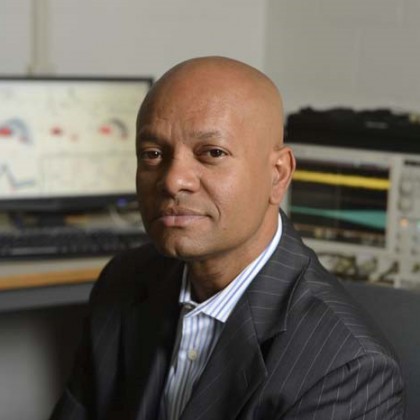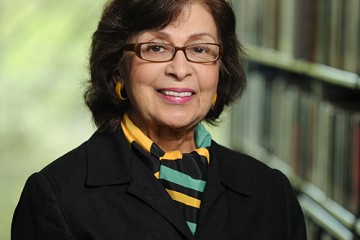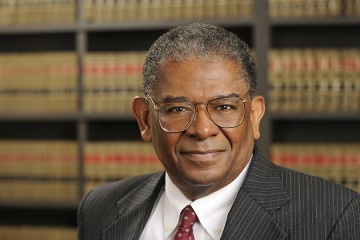This profile is among 61 originally created for the Indispensable Role of Blacks at Johns Hopkins exhibit, which is presented jointly by the Johns Hopkins University Black Faculty and Staff Association, the Office of the President, and Development and Alumni Relations. In celebration of Black History Month, the Hub will publish select profiles from the exhibit throughout February.
Ralph Etienne-Cummings developed his passion for math and science as a young boy growing up in his native Seychelles, an archipelago of islands northeast of Africa, and in England where he lived for long periods of his youth with his grandmother.

Image caption: Ralph Etienne-Cummings
The product of teenage parents, including a mother who stressed education, Etienne-Cummings turned out to be a bright child with a knack for fixing things and figuring out problems. In the U.K., he attended a strict Benedictine school, where he rose to be one of the top students in his class and excelled as an athlete.
The year before he graduated from high school, Etienne-Cummings moved with his family to New Orleans, continuing on a path that would eventually lead him to Johns Hopkins University, where he is a professor of electrical and computer engineering in the Whiting School of Engineering.
Etienne-Cummings landed at Hopkins by way of Lincoln University near Philadelphia, where he majored in physics and took an interest in electronics. He went on to the University of Pennsylvania and he earned his master's and doctoral degrees in electrical engineering.
As an undergraduate, Etienne-Cummings started thinking about research as a career. His focus would be where biology and electronics meet—specifically, developing a spinal implant that will help people paralyzed from the waist down regain movement and sensation. His research interests also include systems and algorithms for biologically inspired and low-power processing, biomorphic robots, applied neuroscience, neural prosthetics, and computer integrated surgical systems and technologies. He holds seven patents and has mentored more than 35 students at the graduate level.
At Hopkins, Etienne-Cummings has sponsored a number of diversity and mentoring programs, including serving as co-chair of the Diversity Committee, and as a mentor of the Whiting School's Robotics Club. Etienne-Cummings has also served as a consulting engineer for several technology firms, including Nova Sensors, Inc.; and Panasonic N. American & Corporation.
Aside from his science, Etienne-Cummings feels strongly about bringing more people of color, particularly African-Americans, into the engineering fold. He is also among those at Johns Hopkins who have been asked by university leadership to help recruit black faculty to JHU, and to the Whiting School.
"It's super important," he said. "In engineering and the university in general we have to do better. Having a diverse faculty matters. You have to have role models. Otherwise, how do you convince yourself that you are good enough to be in places like a Hopkins or a Stanford?"
Posted in Science+Technology
Tagged black history month











